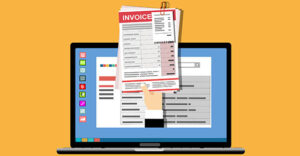
Are you thinking of establishing an online store of your very own, but aren’t sure about the whens, whys, wheres and hows? While it’s daunting to begin a new venture, starting while you’re in your 20s can bring with it certain advantages. Read on for practical advice for those considering embarking on an entrepreneurial e-commerce journey.
Never too early to start
Whether to jump into a business venture can be a conundrum at any age, but as Entrepreneur points out, starting a business while you’re young brings with it certain advantages. While not all startups are successful, your ability to recover from a failure is stronger while your career is budding. Not only do you have more time to revamp if things go south, your lifestyle is likely less rooted than that of older counterparts. This means you can adapt more quickly should you need to change things up to meet your goals. On top of that, it takes an abundance of time and energy to start a business and make it successful. When you’re older, chances are you’ll have other obligations pulling you, so developing a solid foothold now is smart.
Set up at home
One of the great advantages of starting an online shop is being able to work from anywhere, but you’ll want an efficient and comfortable homebase. With that in mind, contemplate where you will locate your home office. Ideally, choose a spot with ample natural light, since that can help boost energy during the workday. A location free of distractions is also key. While designing your setup, focus on functionality and productivity, both immediately and in the long haul.
Consider whether you need to give a space a new identity. For instance, you can convert a closet, or create a multi-use home gym, so long as you aren’t subjected to abundant interruptions. Also, make sure you have enough elbow room to meet your equipment needs so you can keep all your necessities at your fingertips.
Speaking of equipment, one place where you don’t want to skimp is on the devices and software you’re using. Downtime can not only sideline your work, it can mean lost customers and income. Make sure you invest in reliable hardware, and keep your software up to date.
Choosing a platform
Once your physical workspace is established, you’ll have to set up your online workspace. Choosing an effective platform can be another key to success, and Forbes recommends tallying all your potential costs and researching carefully when weighing your options. Look for a platform with 24/7 support, daily backups, and solid security features. To help you get started, you can read reviews on a few popular options.
Of course, you’ll need an engaging, easy-to-use website that will allow your customers to make purchases with as much ease and comfort as possible. And while you can always download a template and fill in the blanks, it’s often best to spend a little money and bring in a pro to handle this task. If you intend to include a lot of multimedia content on your site, look into hiring an HTML5 developer for the job. As Upwork notes, HTML5 developers are skilled computer programmers with a specialization in the use of the HTML5 language to produce and present digital content on websites and mobile devices. This developer can also help you create more dynamic content for your website, which can help you tailor your content to a finer degree.
Smart marketing strategy
A customer base is a must-have for any business,
but how do you establish one when your company is a fledgling? If you lack a customer base of any sort, or
it’s particularly limited, one smart marketing strategy is to do a pre-launch to
grow interest in your product, though it involves some planning.
To start, choose a unique product you feel passionate about, and think about a presentation that will be entirely your own. Consider what will be involved in getting products to customers, and develop that process before you open your doors. For instance, dropshipping is typically a low-cost, quick way into e-commerce, but you will need to be coordinated with your suppliers before you start. Make sure to research which types of products you want to sell. If you’re making your own product, you will need supplies for production handy, examples, and a timeline for when your items will be available to customers. Then you need to decide on avenues for your pre-launch, such as your website, social media, and so forth. You can use a pre-launch checklist to help you navigate.
Starting a business in your 20s offers important advantages. While diving into a startup can be scary, with some preparation, you can establish yourself quickly. Choose an appropriate platform and engage some smart marketing strategies, and you’ll be on the road to success in no time!




